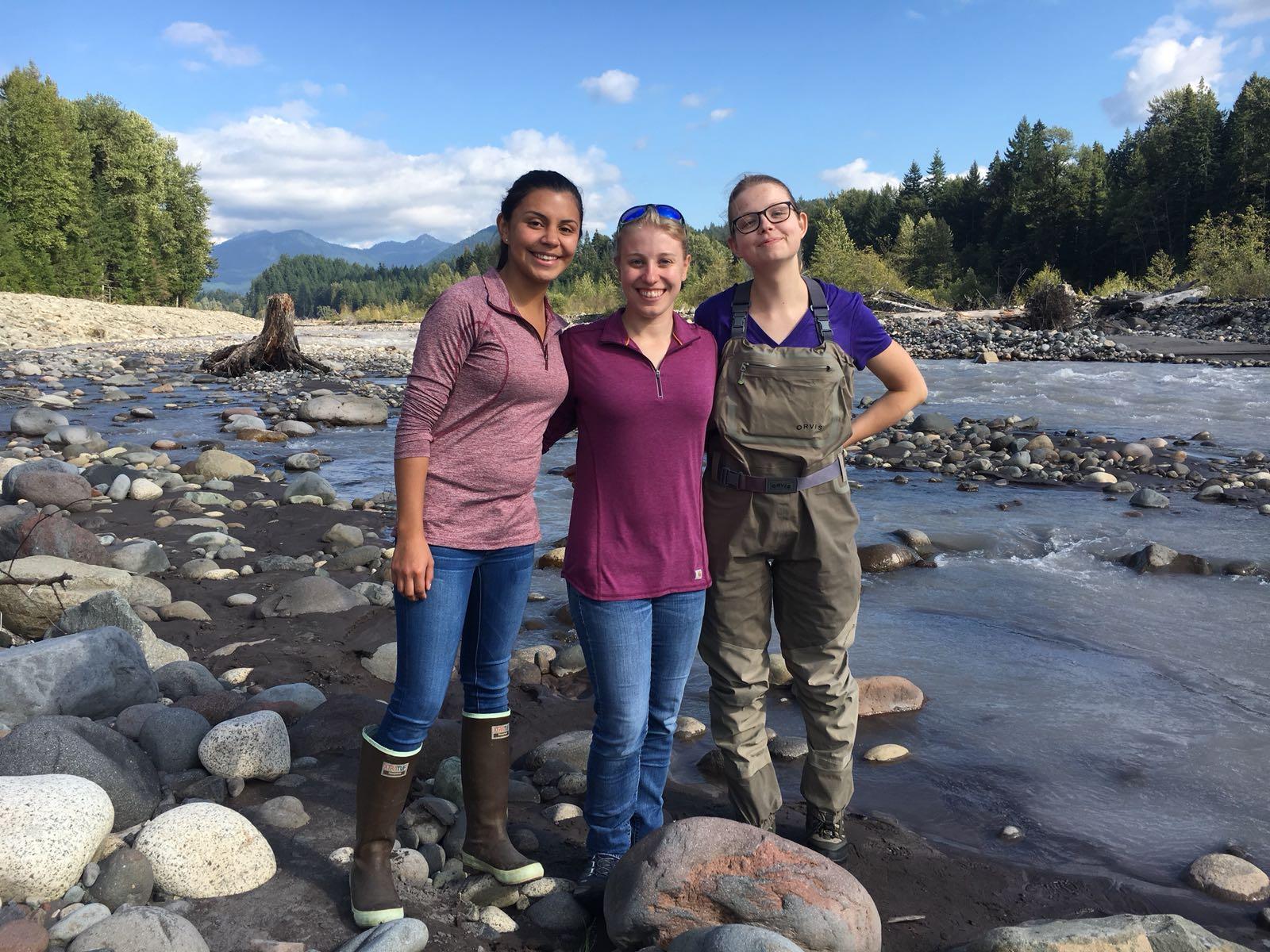A New Approach to Enhance Transferability and Mutual Benefit of Research Outcomes
ICON science is a Department of Energy-developed framework to enhance scientific outcomes via more intentional design of research efforts across all domains of science

PNNL researchers Lupita Renteria, Jacqueline Wells, and Katherine Znotinas pause in their work along the Nisqually River in Washington state.
(Photo by Bree Reed | Pacific Northwest National Laboratory)
The Science
Many domains of science rely on traditional approaches that can result in context-dependent results. These results are often difficult to generalize across systems and they may not be optimized for uses that are beneficial to a broad range of stakeholders. To help address this, a team of researchers refined an approach that’s designed to Integrate across disciplines, Coordinate the use of consistent methods, Openly share ideas, data, and models throughout the research lifecycle, and build diverse Networks that engage a broad range of stakeholders. Known as ICON principles, researchers can apply them to all domains of science to increase the transferability and mutual benefit of research outcomes.
The Impact
ICON principles provide a powerful approach. However, to remain useful and to expand their relevance they must be studied and improved. A small team of researchers learned through crowdsourcing that there is broad agreement across the geosciences that the benefits of using ICON principles outweigh the costs, but the risks can’t be ignored. The crowdsourced effort produced a collection of articles from over 180 geoscientists. This collection now serves as a resource for scientists pursuing the use of ICON principles, and it represents a unified desire to improve how science is conducted across the geosciences and in other fields.
Summary
The way that scientific research is designed and carried out influences who and what benefits from the research outcomes, and how transferable those outcomes are. ICON principles are designed to help scientists maximize the benefit and transferability of their work. They are based on intentionally designing research to Integrate disciplines, Coordinate use of consistent methods, Openly share ideas/data, and Network with diverse stakeholders for mutual benefit. The relevance of these principles and how to best use them across a spectrum of research is unknown. In a new collection of crowdsourced commentaries (19 written by 181 researchers), themes emerged revealing what the geosciences community considers to be of value and/or risk by using ICON principles. One common theme was that ICON principles should be considered a flexible tool to meet diverse needs.
Funding
Portions of this work were supported by the Department of Energy Office of Science Early Career Program at Pacific Northwest National Laboratory. PNNL is operated by Battelle for DOE under Contract DE-AC05-76RL01830. This work was supported in part by the U.S. Department of Agriculture, Agricultural Research Service. The authors would like to thank Sarah Fortner and Cathryn Manduca for providing feedback during revisions.
Published: May 26, 2022
Goldman, AE<, SR Emani,LC Pérez-Angel, JA Rodríguez-Ramos, JC Stegen. 2022. “Integrated, Coordinated, Open, and Networked (ICON) science to advance the geosciences: Introduction and synthesis of a special collection of commentary articles.” Earth and Space Science, 9, e2021EA002099. https://doi.org/10.1029/2021EA002099